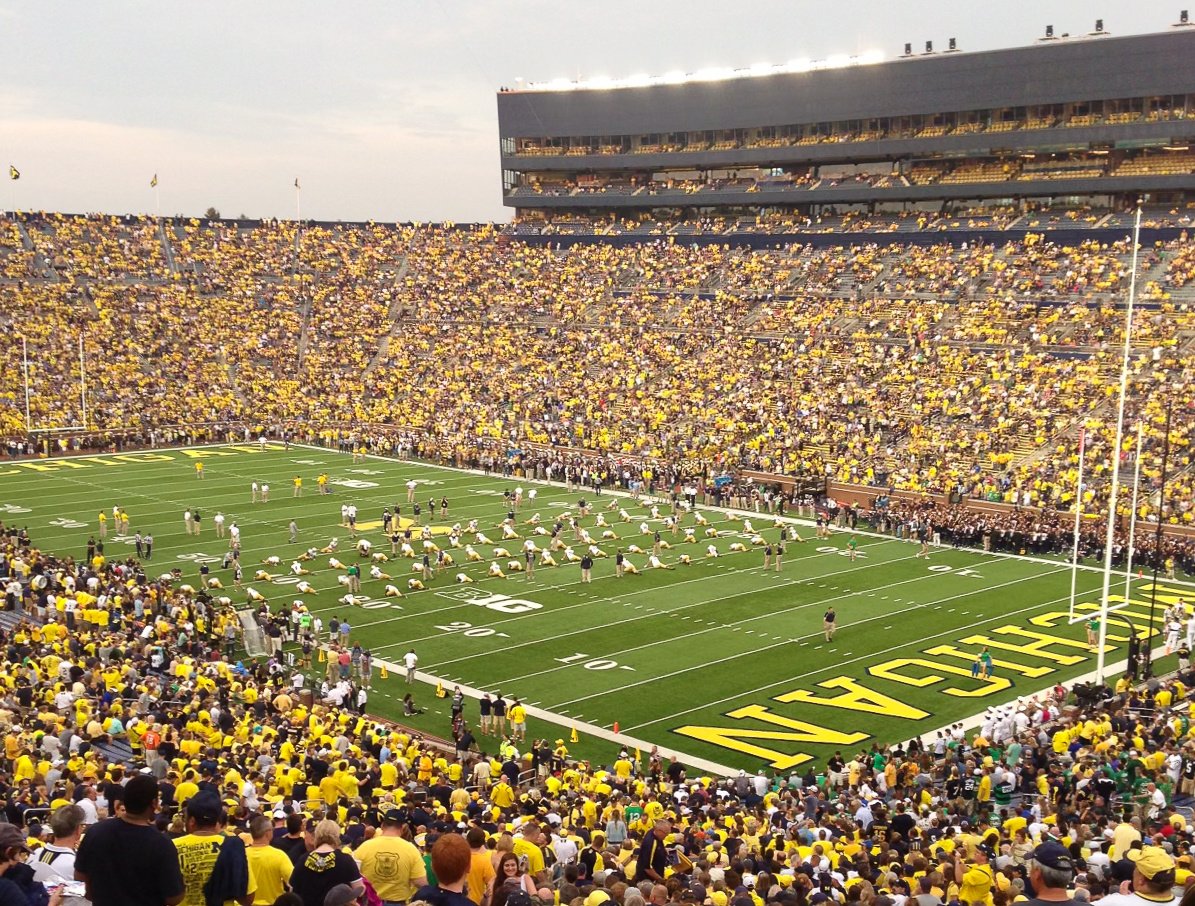Building Authentic Connections in Your School - Empowered Educator

Football season always brings back fond memories of my time at the Big House, home of the University of Michigan. I cherished my season tickets and the electric atmosphere of over 100,000 fans cheering on the Wolverines. Deciding what to bring for the tailgate and whether to wear maize or blue was always tough! When the marching band took the field, I couldn't help but sing along to the fight song.
If you're a sports fan, you get it. If not, maybe it is your favorite touring band concert. We are surrounded by fellow enthusiasts who share the same passion. We believe we can influence the game’s outcome by cheering loudly and wearing team colors. It is an emotional moment with our ‘dedicated friends’.
Belonging: Part 1
Game day is more than just a match; it's about feeling connected to something larger than yourself. Even if you're not into sports, I hope you can appreciate the sense of belonging and camaraderie it brings.
We seek connection in shared experiences as a space to find value and acceptance.
Connection is the community, which brings us joy and excitement. Our sense of purpose becomes alive when we feel those connections.
As an educator, you know the importance of fostering a genuine connection with your staff. True belonging shows up in shared experiences like spirit day activities, wearing school swag, and potlucks. It's about cultivating a deep bond within your team where members feel empowered to speak up, contribute ideas, and ask questions confidently. And it's also about creating deeper connections that excite members to contribute and support each other in the school mission.
Being something bigger than ourselves means finding purpose in contributing to the well-being and growth of others.
Reflection Questions:
-
What roadblocks did we face last year that might have been a side effect of low belonging and connection?
-
If I could increase my staff’s level of authentic belonging and connection by 3 notches, what might be possible for us as a school?
-
What opportunities were accomplished because of our high level of belonging and connection?
Belonging: Part 2
How do you create a feeling of being something larger than yourself?
Creating and sustaining a school culture with the same energy and passion we have for our favorite sports team or concert band is your wow factor for authentic connection! Yes, wear the school spirit swag and have fun experiences together as they build camaraderie! But pushing edges toward stronger bonds of connection, community, and contribution requires deeper work. You are responsible for leading your team’s efforts to authentically achieve your school mission.
Embrace the wisdom of listening:
You can start by simply listening. Each person brings unique ideas and experiences to the table, offering valuable insights that can elevate team performance. By attentively listening, trust is built, and deeper connections are forged, nurturing a deeper sense of belonging.
Engage in meaningful conversations:
As leaders, resisting the urge to constantly provide solutions can be challenging. You took this job because you value service. However, providing time for your team to discuss their thinking can unlock tremendous learning. Your staff members are filled with ideas and a desire to contribute. Empower them!
Great things can happen when your team members see you actively participating in meaningful conversations, inviting their ideas, and supporting their collaboration. They no longer feel they are on the sideline watching; they are now on the field, actively leading the work together. They become something larger than themselves. They become a movement of innovation!
Reflection:
- Listen and Acknowledge.
- Everyone's an expert on something – let them share expertise and best practices.
- Let them on the field!
- ‘What’s possible?’
- ‘If you could not fail, what would you try?’
“When we seek for connection, we restore the world to wholeness. Our seemingly separate lives become meaningful as we discover how truly necessary we are to each other."
- Dr. Margaret J. Wheatley
